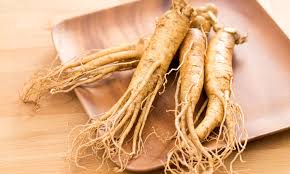It’s a recurring joke really. A patient comes for consultation and after he or she is done, reaches into his bag and brings out some bottles of pills. My heart sinks. Not again. The patient then proceeds to ask the famous question: ‘Dr, are these drugs useful? They were recommended by a friend who sells them and she said it is very good for patients with diabetes. Should I buy them?’
If I had a naira for every time a patient asked me this question, perhaps I would be able to afford a private jet instead on having to face these death traps called Nigerian roads. Over the past few months, the number of patients, relatives and friends who have reached out to me asking about one Chinese concoction or the other has multiplied by ten-fold. Fuelled by the need to improve their immune system in this COVID-19 era, people have become highly vulnerable, and the pharmaceutical companies, having smelt their hunger and blood have closed in for the kill.
Welcome to the world of Complementary medicine. The word “complementary” in the English Dictionary means “in addition to”. Therefore, Complementary medicine is a term used for a wide variety of health care practices that may be used along with standard medical treatment. Examples of complementary medicine include: Alternative health approaches such as traditional Chinese medicine, Mind and body practices like acupuncture, and natural products like herbs, dietary supplements, and probiotics.
The commonest type of Complementary medicine in Nigeria are the Traditional Chinese Medicines (TCMs). Chinese medicine is considered a traditional medicine practice and a popular approach to health care adopted by many individuals throughout the world. It refers to both traditional Chinese medical practices and Ttraditional Chinese Medicines (TCMs). In the past two decades, advancements in research technologies have enabled a substantial body of research in TCMs to be conducted. Research of TCMs supported with advancement in technology has better informed our understanding of TCMs, through the identification of active constituents and mechanisms of actions, and the identifying the forms and doses required to achieve positive therapeutic outcomes and minimise side effects and toxicity.
Some countries, as reported by the World Health Organisation (WHO), have national policies on TCMs products and measures to ensure the quality, safety and efficacy of the TCMs products with respect for the uniqueness of the traditional modality. However, in some cases, authorities have additional regulations and guidelines to supplement the drug legislations to address issues related to the safe and appropriate use of TCMs products. There are also cases where TCMs products, when deprived of certain health claims, may be marketed as “non-medicine” entities. As a result, eligible TCMs products may be marketed as “medicine” only in some countries and areas depending on the regulations. With due respect to the therapeutic values of TCMs products, the identity of “medicine” in any regulatory systems is sought after during the course of scientific investigation. Currently, little research has been conducted to systemically analyse the regulation standards of TCMs products as a “medicine” entity across the countries.
Since the early nineties, Nigeria has seen a steady rise in the number of Asian companies marketing one miracle drug or the other. What makes it even more appealing is the immense profit it promises. Who wouldn’t want to make money from a company that rewards you for every sale you make? They lure Nigerians with promises of cars and houses, riches and fame, based on the notorious Multi-Level Marketing (MLM) structure, and so we see men and women coming out in droves trying to outdo themselves in selling you one product or the other. There are in every social media timeline aggressively marketing their Longrich, Tianshi, GNLD or Trevor products. They make outrageous promises- beauty, long life and a cure for cancer. A lot of Nigerians have therefore fallen prey abandoning their drugs and embracing these ‘medicines’ instead. One of their marketing strategies is to demonise orthodox medicines using the numerous side effects listed on their pamphlets as examples while promoting their products as wholly ‘natural’ and therefore devoid of side effects. This is absolutely untrue and wrong on so many levels.
Firstly, the side effects listed for a particular drug are reactions that occur in every one in one thousand persons. Therefore, the risk of developing the side effects is exceedingly low. For example, liver damage is listed as a side effect of paracetamol; how many Nigerians have developed liver damage due to paracetamol? Can we compare the figure with liver damage caused by alcohol for example? The answer is No! But really, ask yourself; if we truly developed just a tenth of the side effects listed on a pamphlet of paracetamol, would anybody still be alive in Nigeria?
Secondly, many orthodox drugs are themselves derived from Chinese plants. Drugs like quinine and artemisinin popular in the treatment of malaria, are all derived from Chinese herbs. Other drugs like Digoxin used in the management of heart failure are derived from plants around the world. The difference is that, while these drugs have undergone years of clinical trials and have demonstrated significant results in the management of certain diseases, these other ‘miracle cures’ have not. Most of them are produced as multivitamins with proven efficacy to help build the immune system but a Nigerian marketer desperate to make money will tell you that using Cellgevity can help prevent cancer. When you ask them for the mechanism of action, they begin to scratch their heads.
Thirdly that something is marketed as ‘natural’ does not mean it cannot have side effects. When taken in more than adequate amounts, the excess amounts become toxic. In medicine, there is such a thing as hypervitaminosis. Some natural products may be safe when you take them on their own, but may not be safe if you have other medical problems. And they could be dangerous when they are combined with another medicine you take. Additionally, the human body is able to store micro nutrients for use when the stores are depleted. Therefore, unless advised by a doctor, consuming multivitamins blindly may not be such a good idea. A healthy and well-balanced diet is sometimes all that is required. Besides, am I the only one that has noticed how outrageously expensive these Chinese drugs are becoming?
However, the truth is Chinese medicines have come to stay. People often use complementary practices along with care from their medical doctor to deal with chronic health problems, treat symptoms, or just to stay healthy. And while some complementary practices have been studied and tested, most haven’t been studied with well-designed trials. That means there are still many questions about these practices. We often don’t have good evidence from science about whether they are safe, when they should be used, and how well they work.
The greatest risk is when you use these treatments instead of going to the hospital or taking your prescribed medication. Complementary medicine should, therefore, be used in addition to drugs prescribed by a doctor. Otherwise you may miss important treatment that could save your life. A word is enough for the wise.
Okay MLMs, you can now come for my head. I dey house.

 Join Daily Trust WhatsApp Community For Quick Access To News and Happenings Around You.
Join Daily Trust WhatsApp Community For Quick Access To News and Happenings Around You.


